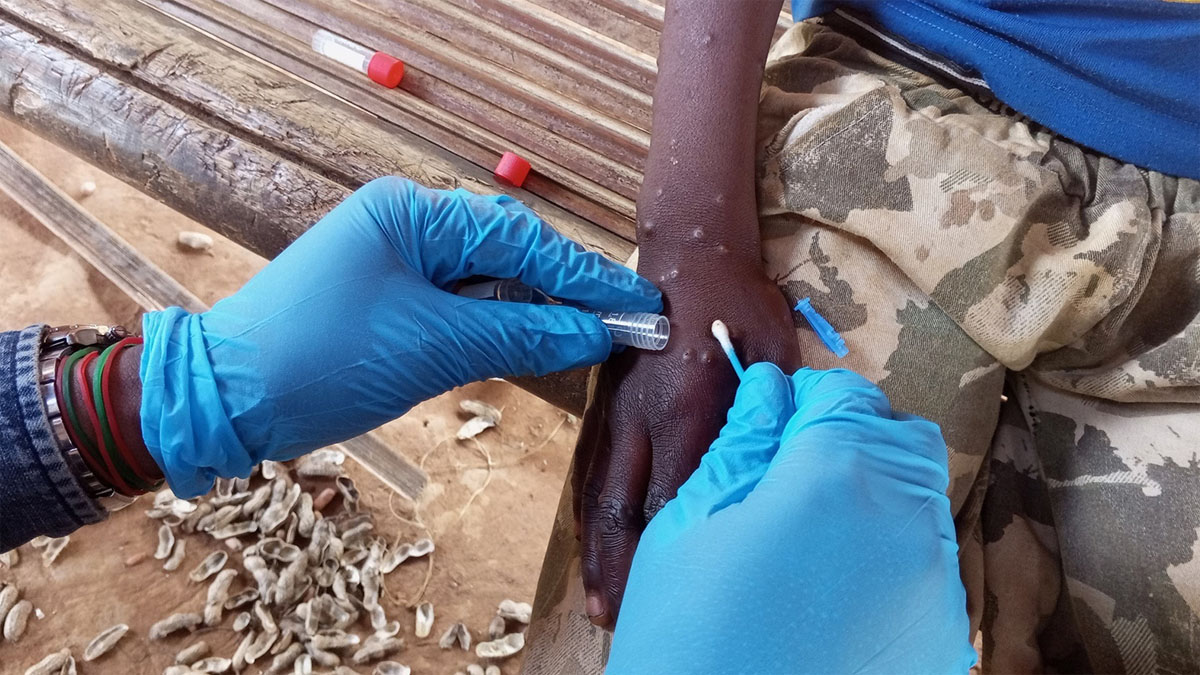
Photo Credit:Katson Maliro/WHO
The World Health Organization (WHO) has declared the ongoing mpox outbreak in parts of Africa a public health emergency of international concern, marking a critical escalation in the global response to the highly contagious disease. Formerly known as monkeypox, mpox has claimed at least 450 lives during an initial outbreak in the Democratic Republic of Congo (DRC), and the situation is worsening as a new, more deadly variant spreads across central and east Africa.
The outbreak, which began in the DRC, has now extended to neighboring countries, including Burundi, the Central African Republic, Kenya, and Rwanda. Scientists are increasingly alarmed by the rapid transmission of a new variant of the virus, known as Clade 1b, which has shown a high fatality rate. The emergence of this variant has prompted WHO chief Tedros Adhanom Ghebreyesus to issue a stark warning about the potential for further spread, both within Africa and beyond.
"The potential for further spread within Africa and beyond is very worrying," Ghebreyesus stated. "A coordinated international response is essential to stop this outbreak and save lives."
Mpox is transmitted through close contact, including sexual activity, skin-to-skin contact, and even close-range conversations. The disease presents with flu-like symptoms, followed by skin lesions, and can be fatal, with a death rate as high as 10% in some outbreaks. There are two main types of mpox: Clade 1, which is the more deadly form, and Clade 2, which caused a milder outbreak in 2022.
The current crisis has been exacerbated by mutations in the virus that occurred around September last year, leading to the rise of the Clade 1b variant. This variant has been described by some scientists as "the most dangerous yet," and its rapid spread has heightened concerns across the global health community.
Since the start of 2024, more than 13,700 cases of mpox have been reported in the DRC alone, with at least 450 deaths. The situation has prompted the Africa Centres for Disease Control and Prevention (Africa CDC) to declare a public health emergency, with its head, Jean Kaseya, warning that the outbreak could spiral out of control if immediate action is not taken.
"We must be proactive and aggressive in our efforts to contain and eliminate this threat," Kaseya urged.
The WHO's declaration is expected to galvanize research, funding, and international public health measures to combat the outbreak. Experts have praised the move as a crucial step in addressing the crisis. Dr. Josie Golding from the Wellcome Trust called it a "strong signal," while Dr. Boghuma Titanji of Emory University emphasized that the declaration "underscores the gravity of the crisis."
However, the emergence of the new Clade 1b variant means there are still many uncertainties. Prof. Trudie Lang, director of the Global Health Network at the University of Oxford, noted that while the WHO's declaration is "important and timely," there are "many unknowns that need to be addressed."
The current outbreak in Africa recalls the 2022 mpox crisis, which saw the milder Clade 2 strain spread to nearly 100 countries, resulting in over 87,000 cases and 140 deaths globally. That outbreak was eventually controlled through targeted vaccination campaigns among vulnerable groups, particularly men who have sex with men.
As the international community mobilizes to address this new threat, the hope is that swift action will prevent the current outbreak from reaching similar global proportions.

















